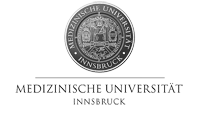|
|
 |
* presenting author
(1) Department of Pediatrics, Innsbruck Medical University, Innsbruck, Austria
(2) Department of Internal Medicine, Innsbruck Medical University, Innsbruck, Austria
(3) Department of Medical Statistics, Informatics and Health Economy, Innsbruck Medical University, Innsbruck, Austria
Aim: Premature aging, associated thymic involution and compensatory autoproliferation could play an important role in the pathogenesis of autoimmunity.
Methods: We measured three indicators of aging in order to evaluate whether or not pediatric patients suffering from juvenile idiopathic arthritis (JIA) demonstrate premature immunosenescence: (1) the percentages of peripheral blood naive T cells; (2) the frequency of T cell receptor excision circles (TRECs) in naive T cells; (3) telomeric erosion as estimate of replicative history of homeostatic proliferation.
Results: JIA patients showed an accelerated loss of CD4+CD45RA+ naive and activated CD62L+ naive CD4+ T cells with advancing age and a compensatory increase of CD4+CD45RO+ memory T cells. JIA patients demonstrated significantly decreased TREC contents in CD4+CD45RA+ naive T cells in early age compared to age-matched controls (p=0.001). Correlation of TREC contents with age were present only in healthy controls (p=0.0001). Telomeric erosion in CD4+CD45RA+ naive T cells was increased in JIA patients and correlates with age (p=0.05). In the present study, the concept of chronic stimulation and autoproliferation was supported by the increased intracellular IL-2 levels in naive and memory T cells.
Conclusion: The age-inappropriate T cell senescence may contribute to the autoimmune manifestations of JIA. Our findings of decreased thymic function and compensatory autoproliferation predict that the ability of these patients to react to novel antigens, such as during infections, or to vaccinations may be compromised. Finally, the dysfunction of JIA patients in reconstituting the T cell compartment should be considered when exploring new therapeutic strategies.
